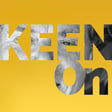
Episode 2223: Sophia Rosenfeld asks if our age of choice might also be an age of tyranny
In an era where even toothpaste shopping can trigger an existential crisis, intellectual historian Sophia Rosenfeld explore how we became both imprisoned and freed by endless options. Her new book The Age of Choice traces our evolution from a world where nobility bragged about not having any choices to one where choice itself has become our modern religion. From voting booths to gender identity, from Amazon's infinite scroll to dating apps' endless swipes, Rosenfeld reveals how "freedom of choice" conquered modern life - and why having too many options might be making us less free than we’d like to think.
Here are the 5 KEEN ON takeaways from our conversation with Rosenfeld:
* Choice wasn't always central to freedom: Historically, especially among nobility, freedom was associated with not having to make choices. The modern equation of freedom with endless choice is a relatively recent development that emerged alongside consumer capitalism and democracy.
* The transformation of choice from moral to preferential: There's been a fundamental shift from viewing choice primarily as a moral decision (like Hercules choosing between right and wrong paths) to seeing it as an expression of personal preference (like choosing between toothpaste brands). The mere act of having choice became morally significant, rather than actually making the "right" choice.
* Democracy's evolution transformed voting: The shift to secret ballots in the late 19th century marked a crucial change in how we exercise democratic choice, moving from communal decision-making to private, individual choice - a change that philosophers like John Stuart Mill actually opposed, fearing it would reduce democracy to consumer-style selection.
* Choice can work against collective good: While individual choice is celebrated as freedom, it can actually hinder addressing collective challenges like climate change or public health, where limiting individual choices might better serve the common good.
* The paradox of modern choice: While we've extended choice into previously unthinkable areas (gender identity, sexuality, family relationships), many people are simultaneously seeking ways to reduce choice overload - from AI recommendations to personal shoppers - suggesting we may have reached the limits of how much choice we can handle.
Sophia Rosenfeld is Walter H. Annenberg Professor of History and Chair of the Department of History at the University of Pennsylvania, where she teaches European and American intellectual and cultural history with a special emphasis on the Enlightenment, the trans-Atlantic Age of Revolutions, and the legacy of the eighteenth century for modern democracy. Her newest book, to be published by Princeton University Press in February 2025, is entitled The Age of Choice: A History of Freedom in Modern Life. It explores how, between the 17th century and the present, the idea and practice of making choices from menus of options came to shape so many aspects of our existences, from consumer culture to human rights, and with what consequences. She is also the author of
